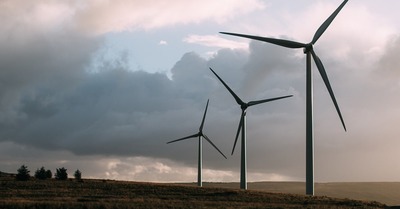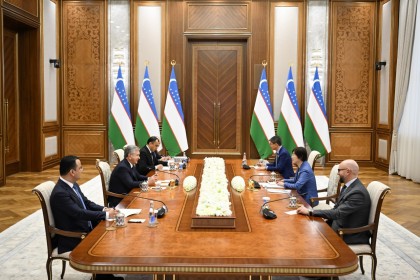The World Bank Group, Abu Dhabi Future Energy Company PJSC (Masdar), and the Government of Uzbekistan have signed a financial package to fund a 250-megawatt (MW) solar photovoltaic plant with a 63-MW battery energy storage system (BESS). The project aims to expand clean and reliable electricity access to approximately 75,000 households.
The project marks Central Asia's first renewable energy initiative with an integrated BESS component. Introducing the innovative BESS component will improve the efficiency and flexibility of the power system, providing greater security of supply and helping to mitigate the intermittency of renewable generation.
The financing package includes up to $53 million loan from IFC and loans for up to $106 million from the Asian Development Bank (ADB), Dutch Entrepreneurial Development Bank (FMO) and Japan International Cooperation Agency (JICA). The financing will support the construction and operation of the new plant. IFC will also provide interest rate swaps for the entire debt amount, allowing the project to effectively manage interest rate risks.
The World Bank is providing a guarantee of up to $12 million to support the government’s payment obligations under the project. The investment package also includes blended finance support in the form of concessional senior loans of $20 million each from the Canada-IFC Blended Climate Finance Program and ADB-managed Leading Asia’s Private Sector Infrastructure Fund (LEAP).
The solar power plant, which will be constructed in the Alat district of the Bukhara region, is projected to cut over 327,000 metric tons of CO2 emissions annually by generating more than 585 gigawatt hours of renewable energy per year.
As the lead transaction advisor, IFC worked with the government to structure a transparent and competitive tender. The government announced in December 2022 that Masdar, the United Arab Emirates’ flagship renewable energy company, was the winning bidder for the PPP tender.
To address the increasing demand for energy in Uzbekistan’s economy and among its citizens, the government aims to scale up renewable energy generation by up to 25 GW, or 40 percent of the country’s overall electricity consumption, by 2030. These efforts support the country's clean energy transition and decarbonization, as well as its economic growth. In this context, the World Bank Group is helping Uzbekistan develop 2,000 MW of solar and 500 MW of wind energy by attracting private sector investments.
“Our growing partnership with Uzbekistan in renewables is bringing clean and sustainable energy to the population at competitive prices,” said Wiebke Schloemer, IFC Director for Türkiye and Central Asia. “The new solar plant with a battery energy storage system will not just boost the uptake of renewable energy in the country, but also help stabilize and strengthen existing electricity grids and aid the global fight against climate change.”
“This project will enhance Uzbekistan’s energy security through the use of innovative solutions and technologies,” noted Marco Mantovanelli, World Bank Country Manager for Uzbekistan. “In addition to attracting private sector participation, the World Bank guarantee has also contributed to ensuring an affordable supply of renewable energy for households and businesses in the country.”
The solar power plant project will be implemented through a project company Nur Bukhara Solar PV LLC FE owned by Masdar, which is responsible for developing, financing, building, owning, operating, and maintaining the solar plant and BESS. The project company is committed to selling electricity to the state-owned National Electric Grid of Uzbekistan JSC under a 25-year Power Purchase Agreement for the project, including a 10-year operating term for the BESS component, signed by these two entities.
The World Bank and IFC have been providing guarantees, financing, advisory, and technical assistance support to the government for launching several plants, including a 100MW solar power plant in the Navoi region (operational since 2021), 440MW solar power plants in Samarkand and Jizzakh regions (under construction), and the first 500-MW wind power plant in the Navoi region (under construction). With the new project to be implemented in Bukhara region, the renewable energy generation capacity supported by the World Bank Group’s operations will increase to about 1.3 gigawatts.












